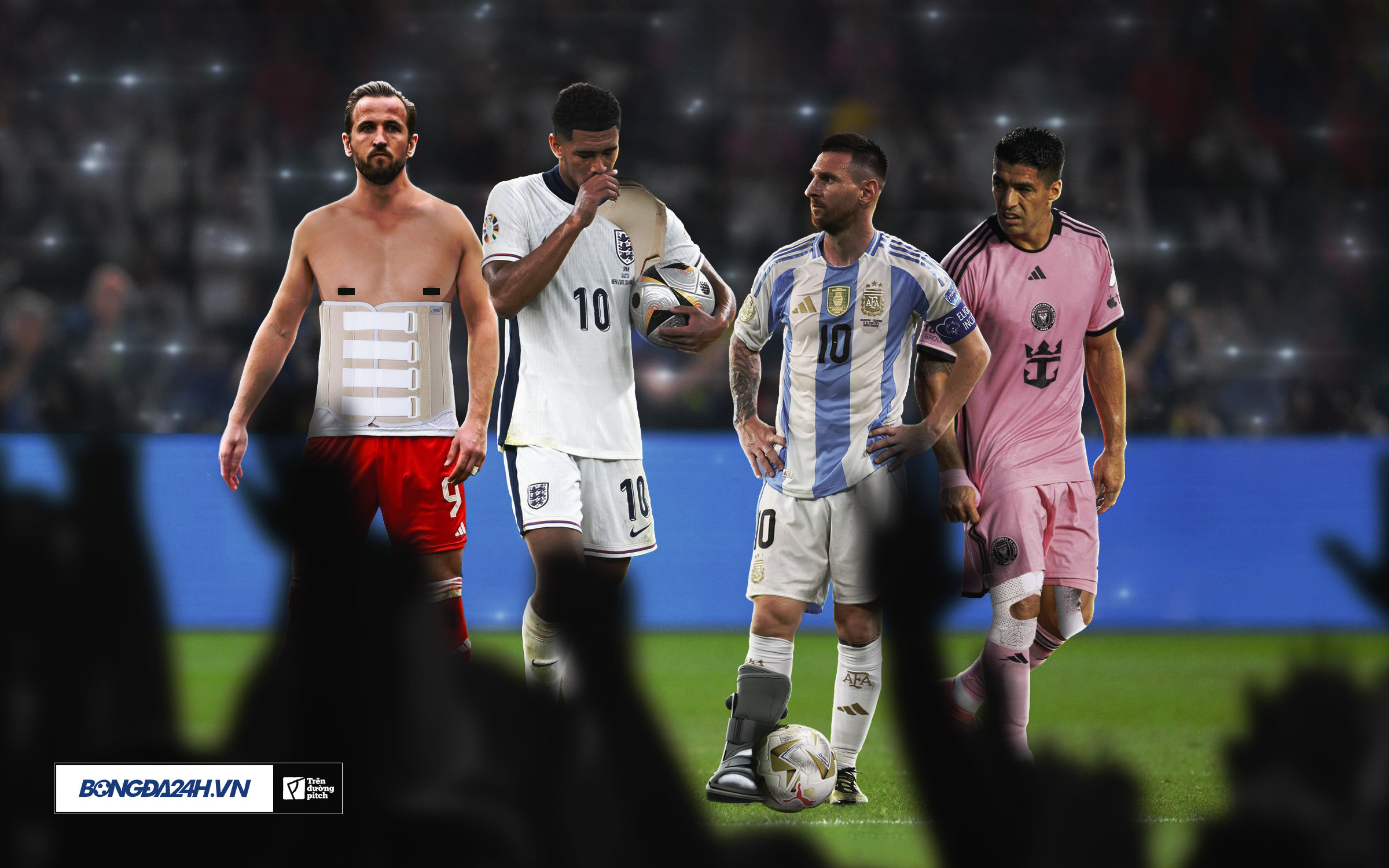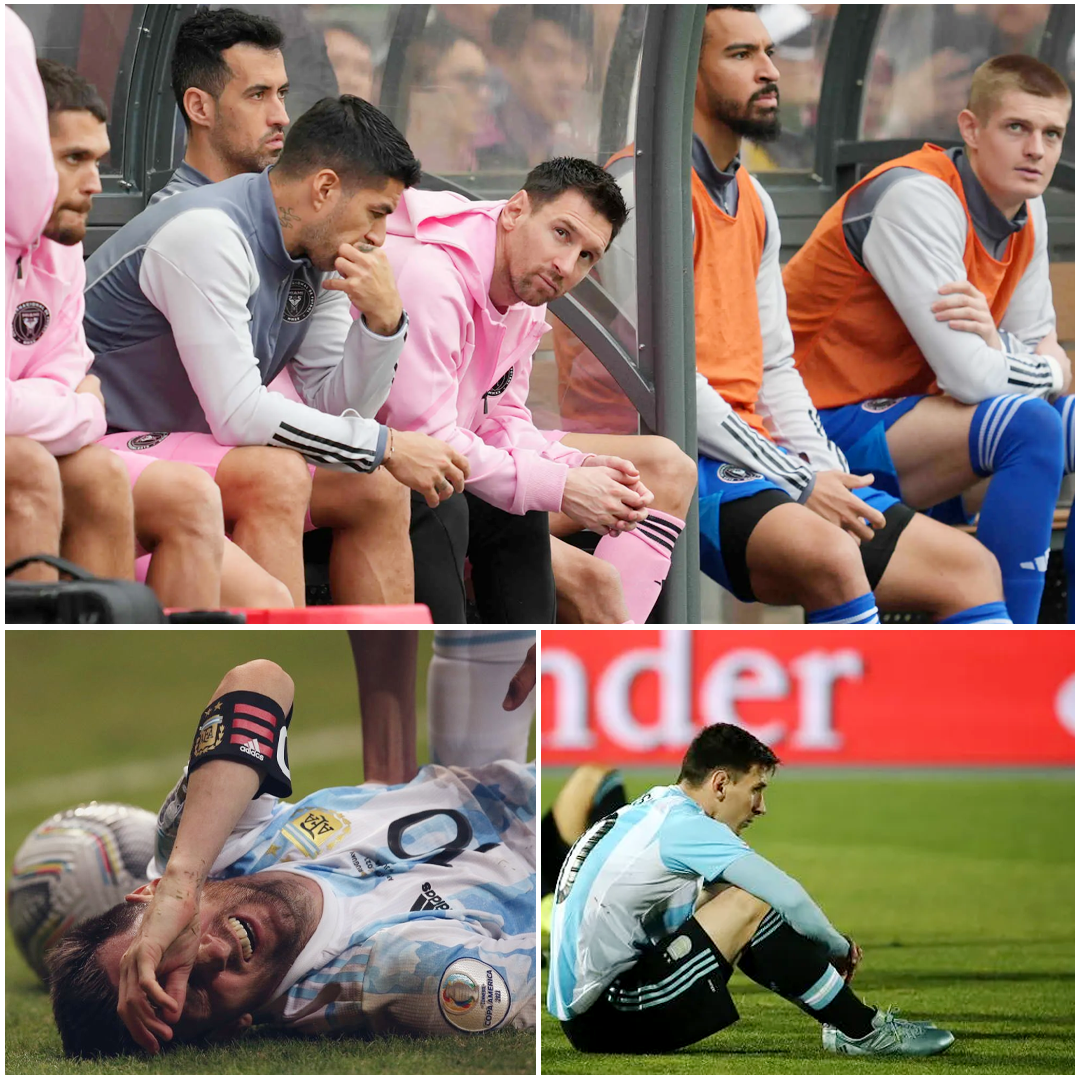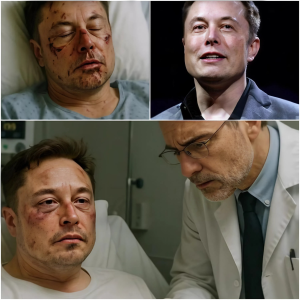Certainly, the sight of Harry Kane trudging off the pitch after an ineffective hour in the EURO 2024 final was not what England fans expected.

In fact, he should not have played at EURO 2024. Kane missed the end of Bayern Munich’s Bundesliga campaign with a back injury, which coach Thomas Tuchel described as “complete blockage” in his back, making it “difficult to do daily activities”. The injury was so severe that there were doubts he would be available for the Champions League semi-final against Real Madrid in May.
Kane isn’t the only player struggling. Jude Bellingham is still dealing with the after-effects of a dislocated shoulder he suffered in November and could require surgery at some point. Bellingham has been wearing a special strap on his shoulder for months to help him play comfortably.
Spain goalkeeper Unai Simon had wrist surgery shortly after the tournament, something he should have had long ago. He has been trying to get through Spain’s EURO 2024 campaign using pain-killing injections.

The same thing happened at the Copa America. You saw pictures of Lionel Messi in tears with his ankle twice its normal size after being injured in the final. He had to be treated to reach the final after suffering a groin problem in the second match against Chile.
His Inter Miami teammate Luis Suarez will also miss the upcoming MLS All-Star Game due to knee discomfort; it is likely related to the chronic knee problem he has been dealing with over the past few years.
Bournemouth’s Tyler Adams will be sidelined for the start of the Premier League season after undergoing back surgery. The American midfielder also struggled to play in the Copa America and may have had to undergo surgery sooner.
“Tyler wanted to play in the Copa America because it was important to him,” said Bournemouth manager Andoni Iraola. “But he was still in pain. So two days after the US team were eliminated, he had surgery.”

But after all, the biggest stars are the most disadvantaged, the most exhausted.
“It’s tough with the crazy schedule and then coming together at the end of the season for a final tournament,” Bellingham said after the final. “It’s tough on our bodies. Mentally and physically, you’re exhausted.”
At 21, Bellingham played 54 times for club and country in an 11-month season that ran from the second week of August to mid-July. Real Madrid manager Carlo Ancelotti tried to manage Bellingham’s playing time by occasionally giving him a week off, but even when he was on the bench, Ancelotti had to signal him to come on.
Bellingham is understandably tired. But his intensity is still relatively light compared to others. Bruno Fernandes was Manchester United’s eternal tree, ‘plowing’ 5,399 minutes last season. William Saliba, who is a regular starter for Arsenal in the Premier League, and Germany captain Ilkay Gundogan have also played more than 5,000 minutes. “It’s a very tough season,” Gundogan said at EURO 2024.

Julian Alvarez may not have played the same number of minutes (he’s ‘just’ 3,480 for Manchester City), but his schedule is just as demanding. His season starts on August 11 (August 6 if you count the Community Shield) and runs through to May, with the longest break between games being just 13 days.
Fifteen days after the FA Cup final, Alvarez made his first pre-Copa America appearance for Argentina. He played in two friendlies before starting all but one of Argentina’s Copa America matches. After a 10-day break, he was back in action for Argentina’s opening game of the Olympics – a long game against Morocco.
The men’s gold medal final is on August 9, meaning Alvarez’s 23/24 season could span almost a full year, with just a few days between games. Manchester City play the Community Shield the following day; let’s hope they don’t require him to hop on the Eurostar for that.
All of this supports the point being made by FIFPro, the global players’ union, and several top European leagues as they file a lawsuit against FIFA, accusing football’s governing body of running an “unbearable” international match calendar.
Pep Guardiola has criticised FIFA and the Premier League for squeezing the life out of his players.
Pep Guardiola has criticised FIFA and the Premier League for squeezing the life out of his players.
“The fixture list is a risk to the health of players,” FIFPro said. “FIFA’s decisions in recent years have consistently prioritised its own competitions and commercial interests, ignoring its responsibilities as a governing body, to the detriment of the economic interests of national leagues and the welfare of players.”
The idea that Premier League clubs are complaining about overloaded schedules is a bit… fanciful. They do pre-season and post-season tours, travel a lot and play a lot of games. Chelsea are playing five games in 13 days on a pre-season tour across the US. Tottenham Hotspur and Newcastle United flew to Australia immediately after the Premier League ended.
The key point remains that the approach taken by FIFA and most other governing bodies (including UEFA) to scheduling matches is ‘more is better’. The expansion of the World Cup from 2026, the new Champions League format, the Club World Cup, the Nations League or whatever other brilliant ideas they might come up with means that, in theory, a star could play… 87 games next season.
No player will actually play that much, but it proves the point FIFPro is making. There are too many games, and even if you don’t really care about player burnout, the sheer volume of games takes away from the excitement of the tournament.

“You start in August and don’t stop until May,” said Mikel Oyarzabal, who scored the winning goal for Spain in the Euro 2024 final. “The national team will play in June and then the Club World Cup. It will end in July and then a few weeks later the new season will start. The schedule needs to be reorganized, but it is not up to the players. We have to adapt as best we can.”
Oyarzabal is a prime example of why FIFPro is taking legal action. In the summer of 2021, Oyarzabal played at the EUROs and then the Olympics, with 16 days between the final match of the former and the first of the latter. He played 104 minutes of Spain’s gold medal match in Japan. A week later, he returned to domestic duty with Real Sociedad. Later that season, he suffered an anterior cruciate ligament injury, which ruled him out for nine months and caused him to miss the World Cup.
You might think there is an element of personal responsibility here: Oyarzabal could have skipped the Olympics if he wanted to. But it is the Olympics, an experience every athlete wants to have. It would be harsh to blame players who want to make the most of their short careers because managers don’t know the meaning of ‘less is more’.

We can’t draw a clear line between overplaying and that particular injury, but it certainly doesn’t help.
“It’s important to have enough recovery time between games,” says Nick Worth, a sports physiotherapist who has worked with a number of football clubs, on why too much play is a problem. “Players are more likely to get injured when they’re playing in a fatigued state.”
Clubs often do their best to regulate the number of games their key players play, and have various methods for assessing when players are reaching their limits and need a rest. But those methods aren’t perfect: “It’s an indicator, not a decision maker,” Worth says. But the sheer number of games and, more importantly, the commercial and sporting importance placed on those games make it harder to determine which ones a player can afford to miss.
Even friendly matches are not safe. Take the match Inter Miami played in Hong Kong last February. Messi missed that match because of a groin injury, but then played in the next match in Japan a few days later. This caused outrage. The Tatler, the event’s sponsor, had to refund 50% of tickets to angry fans after saying the event “disappointed everyone”, while a local politician described it as a “calculated disrespect for Hong Kong”.

There is also a desire from players to play games that, from a medical perspective, they probably shouldn’t be playing. All those who played through injury at the Euros and Copa this summer would probably be rested, if those were mid-season games.
FIFPro has also raised concerns about the overuse of painkilling injections to give players a few extra minutes in a game or a few games. The risk doesn’t come from the injections themselves, but from the fact that they mask the pain the body uses to signal to players that they’re injured. “The risk is that you could make it worse without anyone knowing,” Worth said.
The important thing about both the EUROs and Copa America is that, while there have been some great teams, dramatic moments and new heroes, both summer tournaments have been made less exciting as their biggest stars have either been injured, playing through existing injuries or simply exhausted.
“We are human beings, not machines,” former Liverpool and West Ham goalkeeper Adrian told The Athletic . “We need balance so that fans can enjoy football. We need to be healthy so that we can play. There is no film without actors.”












